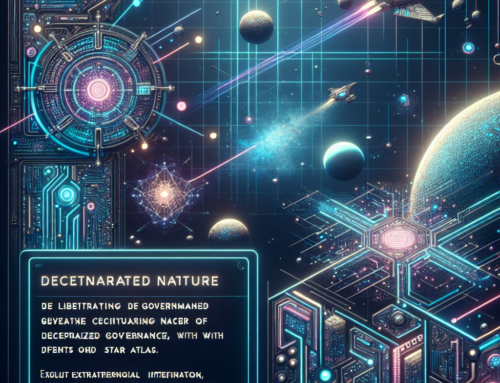Star Atlas & Antitrust Laws: A Titan Analytics Insight

Star Atlas & Antitrust Laws: A Titan Analytics Insight
Star Atlas stands as a pioneering project in the realm of blockchain gaming, intricately weaving together elements of decentralized finance (DeFi) and metaverse experiences. As a Solana validator and Star Atlas analytics platform, Titan Analytics is committed to providing insights that help users navigate this dynamic ecosystem. One area that warrants attention is the application of antitrust laws to the gaming industry, particularly in how it may relate to Star Atlas.
Understanding Antitrust Laws
Antitrust laws are designed to promote fair competition for the benefit of consumers. They prevent monopolistic behaviors, ensuring that no single entity can dominate a market to the detriment of others. These laws aim to foster an environment where multiple players can coexist, innovate, and offer consumers a variety of options.
In traditional industries, violations of these laws can lead to legal consequences, but what happens when we apply this concept to the expansive world of blockchain-based games like Star Atlas?
The Competitive Landscape of Star Atlas
Star Atlas operates in a unique environment influenced by blockchain technologies, making the competition more decentralized than in traditional gaming. However, as the platform grows, it could face challenges related to market control and user exclusivity.
Key Considerations for Star Atlas:
-
Marketplace Dynamics: The virtual economy of Star Atlas includes a marketplace for in-game assets. If a small number of players monopolize certain resources or game mechanics, it could lead to an imbalanced experience. This imbalance may deter new players, contradicting the essence of a competitive gaming environment.
-
Ecosystem Control: Should Star Atlas manage to gain a sizable market share through innovation or investment, there may arise concerns about stifling competition. This could happen if key developers or influencers in the ecosystem manipulate the platform’s growth, limiting opportunities for others to contribute.
-
Tokenomics: The game utilizes its own cryptocurrency, which is pivotal for transactions within its economy. If single entities gain excessive control over the token supply, they could influence prices and user engagement, creating barriers for entry to newcomers and altering the competitive landscape.
Implications for Players and Developers
For players, understanding these dynamics is crucial. Players who participate in Star Atlas should advocate for a balanced environment that promotes fair competition. This can ensure that new and diverse games can thrive within the Star Atlas ecosystem.
For developers, maintaining transparency in governance and enabling player participation in decision-making can prevent monopolistic practices. This fosters sustained innovation and an enriching environment for everyone involved.
Conclusion
The intersection of Star Atlas and antitrust laws highlights the importance of fair play in blockchain gaming. As this exciting platform continues to evolve, both players and developers must remain vigilant about competitive practices. By promoting a balanced ecosystem, we can help ensure that innovation flourishes without compromising the accessibility and enjoyment that attracts players.
For more insights and detailed analytics on Star Atlas, be sure to explore the data modules at Titan Analytics, or reach out to us directly at contact Titan Analytics. Your journey into the vast universe of Star Atlas awaits!




